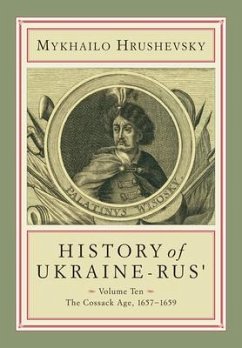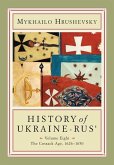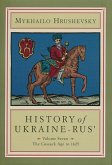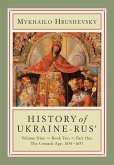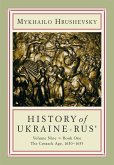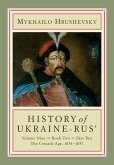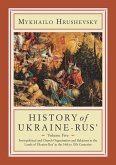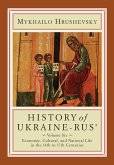Volume 10 covers most of the hetmancy of Bohdan Khmelnytsky's successor, Ivan Vyhovsky (1657-59). Its three chapters constitute only the first part of the volume as Hrushevsky planned it. When he wrote them in 1929-30, the Soviet authorities in Moscow had begun their sweeping attack on Ukraine's political and cultural autonomy, including an effort to enforce conformity on the historical profession. Arrested in March 1931, Hrushevsky was exiled to Moscow, where he worked mainly on his History of Ukrainian Literature. After the historian's death in 1934, his daughter, Kateryna, edited the incomplete volume 10 and managed to have it published in 1936. Hrushevsky's account begins with the tensions surrounding Vyhovsky's assumption of the hetmancy following Khmelnytsky's death. The late hetman's son and designated successor, Iurii, was not yet of age and did not command the loyalty of the Cossack rank and file. Vyhovsky emerged as a 'caretaker' identified with the Cossack officer establishment. He was soon faced with a revolt of Zaporozhian Cossacks led by a rival for command of the Host, Iakiv Barabash, and the colonel of Poltava, Martyn Pushkar. Although Vyhovsky routed their forces in battle, his relations with Muscovy grew increasingly difficult, as he suspected the tsarist government of exploiting rank-and-file dissatisfaction in order to depose him. This led Vyhovsky to consider a reconciliation with the Polish-Lithuanian Commonwealth in which Rus' would be a co-equal principality--a settlement whose conditions were elaborated in the Treaty of Hadiach (1658). The volume closes with Hrushevsky's detailed assessment of the treaty, on which he renders a negative judgment. Volume 10 was translated by Marta Daria Olynyk, who is also the translator of volumes 8 and 9, book 2, part 1, and 9, book 2, part 2. The volume was prepared for publication by two staff editors--editor in chief Frank Sysyn, who was involved in all aspects of the volume, and senior editor Myroslav Yurkevich, who edited the translation for content and style--and two consulting editors, Andrew B, Pernal and Yaroslav Fedoruk. Professor Pernal provided an introduction discussing the sources and structure of the volume. Dr. Fedoruk provided a second introduction, based largely on archival sources, that offers the most complete account yet written of Hrushevsky's creative work during his final years.
Hinweis: Dieser Artikel kann nur an eine deutsche Lieferadresse ausgeliefert werden.
Hinweis: Dieser Artikel kann nur an eine deutsche Lieferadresse ausgeliefert werden.

